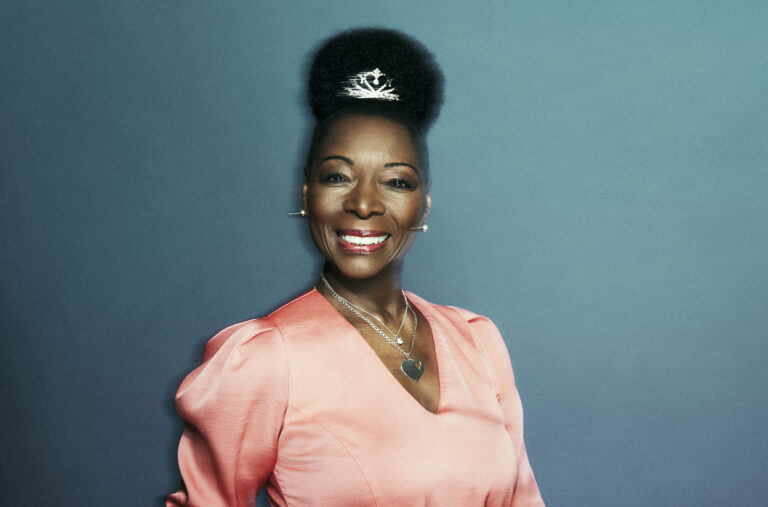
Has the DEI Pendulum swung too far?
Nadia Nagamootoo is the author of Beyond Discomfort: Why Inclusive Leadership Is So Hard (and what you can do about it).
Here, she shares her views about recent pushbacks against DEI initiatives in the workplace.
“Have you ever had to field off questions about whether diversity, equity and inclusion work is the right approach? This is becoming all too common. In the US, we have seen shocking Supreme Court decisions which seem to suggest we have taken several steps in the wrong direction. In 2022, it overturned the Roe vs Wade decision, making abortion illegal. Aside from the severe impact on women’s rights, the health impacts on the poorest and most marginalised groups have been significant. Alongside this, there has been a ban on diversity training and an end to race-based affirmative action, to name a few anti-DEI rulings.
“In the UK, we have also seen examples of similar backlash, such as the government’s rejection to make menopause a protected characteristic due to the risk of discriminating against men suffering from long-term medical conditions. In October 2023, the health secretary, Steve Barclay, ordered for the NHS to stop “wasting public money on DEI roles” and redirect resources to frontline patient care.
“As a DEI professional, it deeply concerns me to witness this pushback, and not just because of the inequitable system these decisions continue to promote. To explain, let’s first look at the typical demographic of the people in power in each of these examples – with a fair amount of certainty, the majority are white, male, cis-hetero, Gen X (in their 50s to early 60s) leaders. They are people who have enjoyed the advantages that today’s society and organisational system brings them, whether consciously or not. They believe in meritocracy where the best person gets the job and that people’s success is purely down to their own effort and talent.
Disconcerted leaders
“When leaders walk through the world purely through their own lens – how they experience the world, what they were taught about the world, how the world responds to them – and believing this to be reality, it is almost inevitable that DEI work will jar. Their general thoughts are:
- Why am I suddenly the bad guy?
- Now I can’t even make a comment related to diversity without people looking at me strangely – as if I shouldn’t have an opinion.
- I’m really concerned that wokeism will mean my children are going to be discriminated against when they enter the world of work.
- Why should certain people be given opportunities and not others?
- The pendulum of fairness has swung too far in the opposite direction.
“Important things to note: if you have ever had any of the above thoughts, that doesn’t make you a bad person and it isn’t something to feel guilty about. Also, DEI should never be about ostracising certain people from the conversation – that won’t get us anywhere, and I believe is part of the reason we are experiencing backlash right now.
“In my book, Beyond Discomfort, I describe these leaders as Disconcerted. They believe DEI is unfair because it is excluding people who have majority characteristics, for example, by setting quotas or targets for achieving more diverse representation at the senior levels of the organisation, or establishing minority-focused talent programmes.
Fear of acknowledging privilege
“Privilege is something we all have. The fact that I am sitting at my desk in the comfort of my home office and you have the ability to read it signposts that both you and I have some privilege. This isn’t for us to feel guilty about, but simply acknowledge its existence.
“However, for Disconcerted leaders, who believe they have earned their successes and been promoted because of their talent alone, acknowledging their privilege can be hugely uncomfortable. If they lean into this discomfort, a number of questions unavoidably arise: Does this mean that they have been given preferential treatment? Do they now have to re-evaluate the value they have placed on themselves? To what extent might they have reinforced this inequitable system in their own actions?
Willing to see inequity
“It’s unsurprising that very few leaders are willing to look deeply at the system through someone else’s lens, how they experience the world and how the world responds differently to them. If, for example, we are out for a walk and I tell you that the trees around us are purple, you might look at me confused and tell me that the trees are green. You might be 100 per cent confident that this is the case for everyone and you might believe 100 per cent that I am wrong. Does this mean that I am?
“In a similar way, if no one has ever told you that you are unsuitable for a role or organisation because of aspects of your identity, or you have never experienced someone deciding not to do business with you because of who you are, does that mean it never happens?
“By confirming inequity is possible is the first step. The second step is for leaders to dial up their curiosity and be receptive to learning about other people’s experiences. They also need to be open to looking deeply at themselves and recognise their role in a system of inequity – tough. Thirdly, leaders need to be willing to take action and address the fundamental flaws in organisational decision making. In order to address these flaws, it might mean that some opportunities are only offered to certain people or that specific targets are set for us to see greater diverse representation.”
Nadia Nagamootoo is CEO and Founder of Avenir, a consultancy which guide organisations and leaders towards greater inclusion.
Beyond Discomfort: Why Inclusive Leadership Is So Hard (and what you can do about it) is published by Practical Inspiration Publishing.





